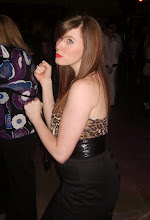So, today we got up and had some breakfast. A very slow toaster almost thwarted us but we just about managed to be fed and watered before our collection at 8.30.
There was interesting chat over breakfast - most people really intrigued by what to expect during the day and last minute planning - as well as the obligatory 'how did you sleep' convo.
After initial disbelief we piled into a minibus set for Maghabeni School - the location of our first workshop. The cramped conditions and overall excitement, coupled with a tiny steel bridge caused a morning hysteria. Spirits were high.
As we pulled into the township it was great to see the local people and where they lived. The surrounding countryside was beautiful, spattered with small huts and houses. We passed a huge recycling plant pumping stuff into the air, as a beautiful lake ran past below.
Once at the school we met with the principle who showed us around. On the walls there were pictures of the children and awards and statues they had won. In amongst the regular committees - classroom committee, sports committee and arts committee there was also the HIV and AIDS committee - another reminder of where we were.
The students, around 30 in total (although more joined throughout the day) couldn't have been more welcoming. Clapping and cheering for us and throwing themselves into our early activities.
As part of the welcome some of the pupils (ranging in age all the way up to 25) wanted to read us their poems. These poems were so beautiful - showing a real natural ability for writing, but more importantly delivered with such vigour and enthusiasm for the spoken word - these children were storytellers. The first poems were in English - I Know One Day You Dream, about the hopes and aspirations a parent has for her child and My Body Belongs To Me, a poem about one girls right over her own body - 'no one can touch my private parts'.
The following poems were in Zulu - as the poets spoke the principal translated. Stories of young and misunderstood love, human rights and the political views of the country and the drugs and prostitution which Lu had already discussed with us in our meeting. We were experiencing first hand their own view of their community. Even though we couldn't understand the language we could understand their view point and the obvious support from their peers. These were people who had something important to say.






No comments:
Post a Comment